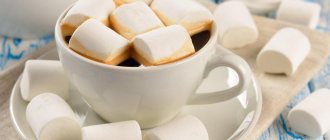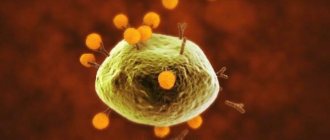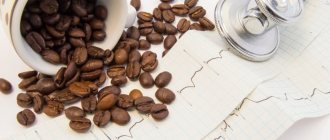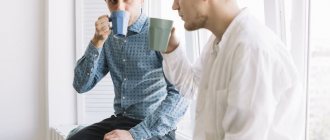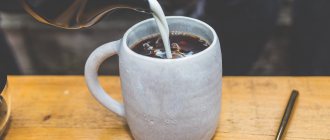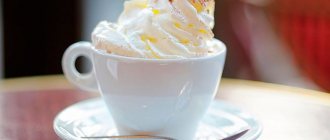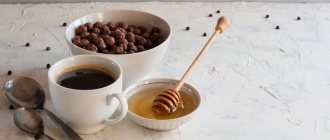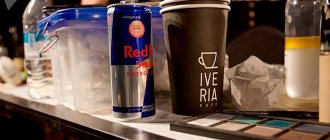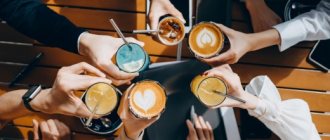You may ask, why would you want to stop drinking coffee?
If you are sensitive to caffeine, feel that you have become restless or can't sleep for a long time, are pregnant or are simply, frankly, addicted to it, then you would want to eliminate coffee from your life as much as possible.
Are you wondering what exactly will happen to your body after you stop drinking coffee? Here are the amazing health benefits that await you, let me share it with you!
Is caffeine a real addiction?
I'm sure many of us didn't say that literally, but some actually might! It turns out that caffeine addiction may be a real disease, especially if it meets the criteria for addiction outlined in the Diagnostic and Statistical Manual of Mental Disorders of the American Psychiatrists Association.
The criteria take into account such things as:
- If something is taken frequently and in large quantities, or for a longer period than intended.
- Constant desire, or unsuccessful attempts to stop using or control it.
- If a huge amount of time is spent acquiring, using or recovering from the effects of this substance.
- If important social, professional, recreational activities are abandoned or reduced due to this substance.
- If use is continued despite a physiological or mental problem caused or aggravated by the substance.
According to Johns Hopkins, which reviews more than 170 years of caffeine withdrawal research, just one cup of coffee a day can lead to caffeine addiction.
Crazy, isn't it? Of course, caffeine addiction is not at the same level as drugs or alcohol, but for some it causes too many problems to convince them to kick the habit.
If this sounds like you, here's what to expect when you quit drinking coffee.
Coffee and fatigue
About 45 minutes after we drink a cup of coffee, caffeine begins to take effect. The body synthesizes dopamine, serotonin and endorphins - hormones of happiness. At the same time, we feel cheerful - due to the fact that caffeine affects one of the centers of sleep and wakefulness in the brain and blocks fatigue, and at the same time stimulates the synthesis of the stimulating hormones norepinephrine, adrenaline and acetylcholine. Here's how it works.
While we are awake and expending energy, auxiliary cells of brain neurons, astrocytes, secrete a special substance - adenosine. Every second of non-sleep, the concentration of adenosine increases until we feel sleep pressure: the eyelids stick together, and the jaw uncontrollably tries to yawn. This is how a high concentration of adenosine tells the brain that it is time to rest - unless we drank coffee. Caffeine molecules are similar to adenosine molecules, so they can take their place and block adenosine-sensitive receptors. In this case, caffeine acts as the antipode of adenosine and, instead of slowing down and calming neurons, begins to stimulate them. So caffeine prevents us from feeling tired - but does not eliminate the fatigue itself and the need for sleep.
Coffee's stimulating properties have a downside. Caffeine is completely eliminated from the body within 8–14 hours. Peak concentration is reached at approximately 30 minutes, and half-life occurs after 4–5 hours (caffeine breakdown schedule). Then the receptors become sensitive to adenosine again, and fatigue returns to us - all of it, both the one that we blocked and the one that accumulated while the stimulant was in effect. I noticed that when I drink coffee, after the peak of alertness, fatigue returns abruptly, rather than gradually. It was as if someone had pressed a switch and the strength evaporated. They could only be brought back with one more dose, and this led to a new problem.
To block adenosine receptors and feel alert, a small amount of caffeine is enough - about 40 mg. This is just two cups of strong green tea. But the body develops a tolerance to coffee, and for an invigorating effect we need more and more coffee. Because I was drinking coffee, I quickly became tired again, and at the same time my receptors were getting used to caffeine, I consumed more and more caffeine and regularly exceeded the 40 mg dose.
This excess amount of caffeine can lead to anxiety, nervousness, and confusion. I didn’t notice it myself, but from the outside I always looked twitchy, in a hurry and worried. I remember my colleagues telling me about this, but I didn’t attach any importance to it, attributing it to stress and general anxiety, until I began to study the effect of caffeine on the body. In addition, in the evening I was still under the influence of the stimulant and tossed and turned in bed for a long time without sleep, and also often suffered from headaches, which, I assume, arose from hypersensitivity to the adenosine accumulated in the body.
Symptoms of a caffeine hangover.
About half of all coffee drinkers will experience symptoms of a hangover as soon as they stop drinking coffee.
These symptoms will begin 12-20 hours after the last caffeine dose, worsening after 2 days. You can safely expect that they may last about a week. While it may be unpleasant, it will also be totally worth it!
Don't worry - I'll give you some tips later to reduce your discomfort.
Headache.
There's a range from mild to violent here, although not everyone will experience the drumming in their heads. Typically you will only experience a headache as part of a caffeine hangover if you have been drinking 500 mg of caffeine per day. That's about five cups of coffee. Quite a lot by most people's standards.
But even if you get caffeine from other sources (such as tea, soda), it will all count towards that 500 mg intake.
Anxiety, depression or irritability.
If you're stopping caffeine because it's making you depressed, anxious, or even causing a panic attack, the last thing you want to hear is that abstaining from caffeine can cause anxiety and depression, too.
According to the Johns Hopkins Therapy teachings I mentioned earlier, 13% of people develop “significant impairment” while abstaining from caffeine.
For some, it was impossible to leave home, work or responsibilities... pretty serious side effects, eh?
Less serious is the irritability you may feel when everyone or everything around you gets on your nerves.
Constipation.
Caffeine tends to stimulate the digestive tract, so when you stop drinking coffee, you may feel a little (or more) “sealed” on both sides.
If this happens, you can give the food a boost again by eating plenty of fiber in the form of whole grains, vegetables and legumes, drinking plenty of water and exercising regularly.
How to Ease the Symptoms of Caffeine Abstinence.
Here are some easy, helpful tips to help you break the habit.
- Many experts advise quitting caffeine gradually. Reduce from 3 cups a day to 2 and then to one.
- Replace your coffee with green tea, which also contains caffeine, but much less.
- Avoid drinking soda, which is not only a source of caffeine, but also contains a lot of sugar and other dangerous additives.
- Combat the sudden decrease in activity caused by caffeine withdrawal by eating healthy foods that will provide you with a gradual flow of energy throughout the day. Aim for a balance of healthy fats, complex carbohydrates and protein.
- Drink enough water to stay hydrated and avoid headaches, stomach stagnation, and other symptoms of caffeine abstinence.
- Lemon water is a good replacement for your morning cup of coffee and can help you recover from addiction.
Results of giving up coffee
I haven’t drunk coffee for a little over two years, and tea for six months. Life without stimulants seems more measured and calm, there are no sudden surges and dips in activity. My energy state throughout the day is not subject to external influences, but to the natural order of things. In the evening I feel tired, in the morning - sometimes sleep-deprived, sometimes - on the contrary, well rested. If I feel tired during the day, I also cope with it using natural methods - I take a break or go to sleep. These feelings are mine, and I am sure that I owe them to my body and behavior, and not to a substance that affects the biochemistry of the brain.
Caffeine has positive effects, and sometimes I still use it, but I do it strategically. For example, I take several carbohydrate gels with caffeine with me to a running marathon in order to slightly accelerate my physical capabilities at the right moments. After quitting stimulants, the effects of these gels are enough to cheer you up and feel an influx of energy. Or perhaps this is again a placebo effect, because for a documented effect on strength and endurance you need more caffeine - from 3 mg per 1 kg of weight, and there is only 75 mg in the gel.
The hardest part about quitting caffeine is the social aspect. When people find out that I don't drink anything that contains caffeine, they inevitably begin to suspect health problems and ask about them. The waiters and baristas raise their eyebrows at my request for a cup of boiling water. At first, this reaction can be confusing. But I know why I’m doing it, and I no longer feel strange, abandoning the practice that everyone is familiar with.
Your hormones return to normal.
Eliminating caffeine is just one of many dietary changes recommended to balance hormones.
Hormonal imbalance affects many people today, thanks to poor diet, pollution and stress.
Hormones that are out of whack have a big impact on your overall health, so you should remember some positive changes when you stop drinking coffee.
For example, the caffeine in coffee increases stress hormones, including cortisone. In fact, after you drink coffee, your cortisone levels in your body are identical to those when you are under great stress.
High cortisone levels are linked to mental problems such as memory loss, as well as insulin resistance, which can ultimately lead to diabetes.
Coffee may also affect human growth hormone, which helps maintain healthy muscles and bones in adults.
Fact No. 2. Sugar is everywhere
Avoiding added sugar is probably the best way to remove a lot of unhealthy foods from your diet. True, reading labels in stores will initially take more time. But almost all baked goods, sauces, fast food, soda, business lunches, the composition of which cannot be controlled, sweetened dairy products, ready-made breakfasts, packaged juices, and so on will automatically disappear from your diet. What to do?
I'll have to cook more. And this self-prepared food will be healthier than before. Instead of sweet cereal for breakfast, you will have to cook porridge. Instead of fast food, you will prepare salad, soup and chicken breast or fish for lunch. On a good day, with a lunch box, you can go out to a square or park and breathe fresh air, rather than tobacco smoke in a nearby cafe. With the money saved from sweets and office lunches, you can pay for a pool membership or yoga lessons. While you are sweating in the gym or getting wet while walking a 25-meter track, you don’t want to think about chocolates at all.
You will sleep better.
Even a small cup of coffee can disrupt your night's sleep, so don't be surprised if you suddenly start falling asleep like a baby.
Isn't it ironic that giving up coffee can completely eliminate the need for an afternoon pick-me-up?
A review of studies found that regular daily caffeine consumption is associated with restless sleep and daytime fatigue. Researchers also say that the effects of regular caffeine consumption on sleep and activity are largely underestimated.
And a 2012 study looking at the effects of drinking coffee at different times of the day found that consuming caffeine six hours before bedtime can have a disruptive effect on sleep.
Week three. March 29 – April 4
Monday Tuesday
The experiment is easy. The only thing that worries me is that the tea and jam runs out very quickly. Seriously, I feel like I only go to the store to buy a new pack. It would probably be more logical to switch to water...
But I discovered the wonderful world of jam, I didn’t even know that there were so many flavors: in addition to the standard flavors - strawberry, blueberry, cherry, wild berries - there is also gooseberry, lemon and ginger and even fig!
The feeling is great. I once watched a video about coffee, and they said that too much of it can provoke anxiety. As a super-impressionable person who likes to immediately transfer everything to myself, I was sure that this was exactly my case. I'm generally an anxious person. Therefore, I don’t know whether it was self-hypnosis, or the stars aligned, or other external factors, but I began to worry less.
Wednesday Friday
The second half of the week turned out to be very difficult. I promised that if I did all the work, I would treat myself on the weekend. I thought that on Saturday I would go somewhere for breakfast. And I was already imagining in all colors how I would buy delicious coffee with syrup at my favorite coffee shop. And then I remembered that I wasn’t allowed, and I was very upset.
Another disappointment - I bought jam with lingonberries. But it turned out not to be jam, but just canned berries.
Sunday
I met with friends, went to IKEA for a broom and candles (I really needed it), and at the same time walked around Mega. We decided to have lunch here. This time I took a milkshake instead of coffee. But a situation happened.
I recommended to a friend a cool coffee shop that I had been to before the experiment, and I really liked the way they brewed coffee there. I generally think that this is one of the best establishments in the city.
A friend got coffee there and didn't like it. Moreover, she grumbled for some time that it didn’t taste good and she couldn’t drink it. I was bursting because I couldn’t try and evaluate. And I really wanted to protect this coffee shop!
In general, I listened to her grumbling, and in the end I couldn’t stand it - I repent! - and took one tiny sip. This was a mistake. To my taste, it was a great coffee, specific but interesting. And I wanted more.
Results of the week I was tormented by remorse. I realized that if everything is easy, you shouldn’t rejoice ahead of time. And that you need to read more carefully what is written on the packaging.
You may become less anxious.
Researchers are becoming very concerned about the role of caffeine in panic attacks and other anxiety disorders, which have become the most common mental illnesses in the United States.
If you've been drinking too much coffee - which many of us have done at one time or another - then you'll know the feeling of panic you get.
Besides those prone to anxiety disorders, too much caffeine can trigger a variety of unpleasant sensations, such as sweaty palms, a pounding heart, and ringing in the ears. This can lead to a full-blown panic attack.
What's alarming is that many of these people don't even realize that the coffee is causing them anxiety and attribute it to what they were doing at the time - taking part in a meeting or driving on the highway.
Remember your mood in the days or weeks after you stop using. You may notice that you are happier and calmer and this is just the exception of coffee.
What can replace coffee?
Often people like the taste of coffee, which makes it difficult to break the addiction. In this case, you should try to find a replacement for this drink.
She can speak:
- green tea;
- decaf;
- chicory;
- poppy;
- carob.
Strong green tea has a slight tonic effect. It has a pleasant taste and aroma, so it will help get rid of addiction.
Decaf is a coffee that contains 97% less caffeine than classic Arabica. The drink is suitable for those who cannot give up the usual taste.
Chicory contains inulin, so it has a tonic effect. You can prepare it in a Turkish and French press.
Maca is a drink that invigorates no worse than cappuccino. It contains a high content of nutrients. The main disadvantage of maca is its strong taste. It is recommended to dilute the drink with milk or cream.
Carob can replace not only coffee, but also cocoa, chocolate and sugar. It has a sweetish taste.
You can say goodbye to headaches.
If you suffer from regular headaches and your doctor has found no cause, have you ever considered the possibility that it is related to coffee?
Especially caffeine abstinence?
If your body expects its usual dose at 11 am, but you are tied to the bell and can't make coffee, then you will experience symptoms of abstinence, such as a pounding head.
Dr. Stacy Sigmon from the University of Vermont explains why you feel so sick - the lack of caffeine significantly changes blood flow and even electrical activity in your brain.
However, you need to drink two or three cups of coffee a day to suffer from this type of headache if you miss a dose.
Purpose of the experiment
How caffeine works: Caffeine blocks adenosine receptors in the brain, preventing the substance from binding to it.
That is, caffeine prevents the brain from understanding that it is tired. In the book “The Everything Store: Jeff Bezos and the Age of Amazon,” the author wrote that back when the company was developing in a garage, one of the managers forbade employees to drink coffee. He believed that energy for work should be taken from carbohydrates, not caffeine. And he was right.
Regular consumption of coffee reduces its effects and forces us to increase the dose. As a result, we get poor quality sleep, after which, upon waking up, we immediately pour an invigorating drink and drive ourselves into a vicious circle.
In addition, caffeine hides the optimal amount of nutrients necessary for a productive life. This is important for me, since I train with iron 5 days a week and the lack of energy greatly affects my well-being. Caffeine prevents my brain from realizing that it is tired and, as a result, I cannot detect that I am hungry. As a result, at the end of the day, when the caffeine wears off, I feel low in energy and the only thing I want to do is sleep.
You will lose weight.
You may have heard that caffeine can slightly aid weight loss or prevent weight gain, so how could giving up coffee have the same effect?
In general, quitting drinking coffee may not cause you to lose pounds if you have only ever drank black coffee.
But if you allowed yourself a Starbucks Grand Cafe Mocha with whole milk and whipped cream every day, then that's another 400 calories per cup!
Even a Grand Cafe Latte with 2% milk will set you back 190 calories per cup. This equates to 1,330 calories per week, plus an additional 140 calories if you add one packet of sugar per day.
With statistics like these, when you quit this habit, weight loss is guaranteed.
Week two. March 22—28
Monday
After my illness, I can no longer look at tea with lemon, honey, or raspberry jam. But drinking just black without anything is the same. It doesn't taste good with milk. I bought several types of jam at the store so that I could combine them somehow. I really liked it with blackcurrant and peach-mango jam.
I also noticed that as soon as I stopped drinking coffee, I lost the need to buy milk. The packaging, started before the experiment, simply stood in the refrigerator until the milk spoiled. But the pack of tea ran out very quickly: with my habit of drinking something all the time, over the past week it took one and a half packs of 25 bags.
Tuesday
I slept well, fell asleep almost immediately and never woke up during the night. I haven't had any headaches for a week now either.
Surprisingly, I don't have a craving for coffee. I was walking with a friend, she suggested we go in and buy some drink to take with us. I took cocoa - another good alternative and not as sweet as hot chocolate.
I usually always buy some pastries for coffee. Buns and cakes in general are my weakness, perhaps in the next experiment I will have to give up sweets (I will fail it on the first day). But for some reason I don’t want anything like that with cocoa - saving money!
Wednesday
Stayed overnight with friends. They are night owls, so they go to bed much later than I am used to. And I always don’t get enough sleep with them. In the morning I really wanted to cheer myself up with coffee, but I courageously controlled myself.
It also turned out that my friends are the sweetest, most sympathetic and understanding people in the world. At breakfast they asked if I would be uncomfortable if they made coffee for themselves. This kind of care is very pleasant. But, of course, I didn’t limit them in any way.
Thursday - Sunday
The rest of the week I was focused on business and didn’t think about coffee. I drank a lot of tea. For the first time in a long time, I fell asleep almost immediately and woke up easily. Even on weekends without an alarm clock, I got up at nine in the morning and felt rested.
Results of the week I experimented with jam. Saved on trips to the bakery (no coffee, no buns). I fell in love with my friends even more.
Your heartburn will disappear.
According to the National Digestive Diseases Coordinating Center, about 20% of Americans suffer from sour belching at least once a week.
And 7% of Americans experience heartburn every day - a burning sensation in the chest and a sour taste in the throat.
If you are one of those Americans, then eliminating coffee from your diet may solve this problem; coffee is one of the top ten causes of heartburn according to WebMD.
An increase in gastroesophageal fluid outflow has been noted in studies. Even decaffeinated coffee causes the same increase; leading researchers say it is a completely different component in coffee than caffeine that is causing the problem.
This may be because coffee is acidic and increases stomach acid levels. Decaffeinated coffee and regular coffee increase acidity levels more than caffeine alone.
Whatever the reason, coffee is linked to heartburn, so cut it out and see if you feel better. See also my other tips on how to deal with heartburn and indigestion.
Week four. April 5—11
When I first started this experiment, one of the editors said that she had already tried it. According to her, “at first it will be bad, then good, and then bad again.” At first I managed without difficulty, but the last week was really difficult.
I literally counted the days (marked them on the calendar) until the cherished Monday.
I firmly decided that as soon as the experiment was over, that same morning I would go to the nearest coffee shop and buy the largest latte with the most delicious syrup (my personal favorites are banana or coconut).
There was also a temptation in the store: when I walked past the shelves with coffee, I wanted to buy a pack for home. The logic was this: there was a week left until the end, I held out for most of it, if I drink today, no one will know anything anyway. But I didn’t want to look spineless in my own eyes, so I still showed willpower.
The remaining days I simply “suffered.” As a result, I couldn’t stand it and on Sunday - since it was still the last day - in the morning I “uncovered” the geyser coffee maker, which, poor thing, had been standing idle for a whole month. It was the best morning.
You will have pearly white teeth again.
Since coffee is acidic, over time it washes away tooth enamel. In the long term, this means that your teeth won't look as good and may even start to decay.
And the tannin contained in coffee is applied to the enamel, making your smile charmingly yellow.
According to studies comparing the effects of tobacco and coffee on tooth enamel, people whose teeth were darkened by coffee were no longer resistant to brushing and were more likely to become discolored after dental whitening.
If your teeth still remain dark after coffee, despite all your efforts to whiten them, you can always try oil pulling.
It promotes oral hygiene, and even though there is no scientific evidence that it whitens teeth, fans of the practice claim that it does help.
